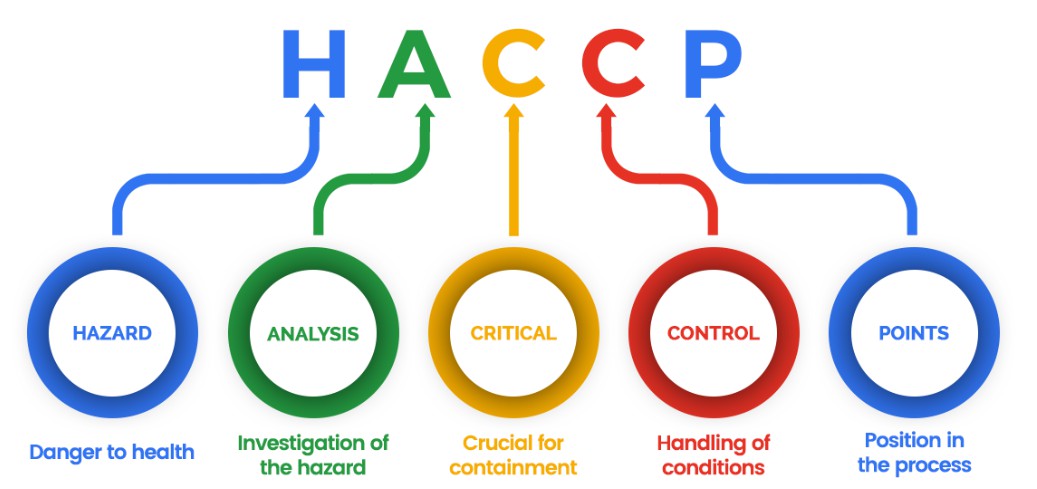HACCP Certification: Ensuring Food Safety & Compliance for Irish Businesses in Dublin, Cork, Galway, and Beyond
If you are a restaurant owner, catering service provider, or food manufacturer in Ireland, understanding the importance of HACCP Training cannot be overstated. The Hazard Analysis and Critical Control Points (HACCP) system is a fundamental part of food safety management. In this post, we will explore how obtaining HACCP Certification through structured training courses ensures compliance with both Irish and EU food safety regulations while promoting public health.
The Importance of HACCP Certification in Ireland
In the vibrant food industry landscape of Dublin, Cork, Galway, Limerick, Waterford, and Belfast, businesses are tasked with upholding stringent food safety standards. HACCP certification signifies that your business has trained personnel who recognize and manage food safety risks effectively. This proactive approach not only enhances compliance with legal requirements but also minimizes risks of contamination, making the food you serve safer for everyone.
How HACCP Training Reduces Food Safety Risks and Ensures Compliance
By investing in HACCP Training, food businesses can:
- Understand the HACCP Principles: These principles guide the identification of potential hazards and the implementation of control measures at critical points in the food preparation process.
- Meet Legal Requirements: Compliance with the Food Safety Authority of Ireland (FSAI) and EU regulations is mandatory. HACCP certification helps demonstrate that your business adheres to these standards.
- Enhance Risk Assessment Strategies: Effective risk management involves identifying hazards, assessing risks, and creating written procedures to mitigate them.
- Improve Public Health Standards: With proper training, your staff knows how to handle food safely, reducing the chances of foodborne illnesses.
Understanding HACCP Principles and Food Safety Regulations in Ireland
HACCP is based on seven core principles:
- Conduct a Hazard Analysis: Identify any hazards that could pose a risk to food safety.
- Determine Critical Control Points (CCPs): Establish points in the process where you can prevent, eliminate, or reduce hazards.
- Establish Critical Limits: Set limits for each CCP to ensure hazards are controlled.
- Establish Monitoring Procedures: Define procedures to monitor critical points and verify compliance.
- Establish Corrective Actions: Develop actions to be taken when monitoring indicates a deviation from defined critical limits.
- Establish Verification Procedures: Verify that the HACCP system is working effectively.
- Establish Record-Keeping and Documentation Procedures: Maintain accurate records for compliance audits and monitoring.
The Benefits of HACCP Certification for Restaurants, Catering, and Retail
Obtaining HACCP Certification is not just about compliance; it can also lead to several business benefits:
- Builds Customer Trust: Customers are increasingly concerned about food safety. Displaying your HACCP certification can enhance your brand reputation and attract more patrons.
- Reduces Financial Risk: A HACCP-certified business is less likely to experience food recalls, contamination claims, or legal action, potentially saving significant costs.
- Streamlines Operations: Having a clear system in place for food safety can lead to improved operational efficiency and employee training.
Step-by-Step Guide to Obtaining Your HACCP Certificate
Here’s a simplified guide to achieving your HACCP certification:
- Enroll in a recognized HACCP Training Course.
- Complete the training program, covering all essential HACCP principles and legal requirements.
- Implement HACCP procedures within your business, ensuring all staff are trained in food safety practices.
- Conduct an internal audit to ensure compliance and readiness for certification.
- Apply for HACCP certification through an accredited body.
- Prepare for a final audit by the certifying agency; ensure all documentation and processes are in place.
Comparing Online HACCP Training vs. In-Person Courses
When considering your training options, both online HACCP Training and in-person courses have their merits:
- Online HACCP Training: Offers flexibility, allowing participants to learn at their own pace, making it ideal for busy professionals.
- In-Person Courses: Provide face-to-face interaction with instructors and peers, fostering collaboration and immediate feedback.
Both methods can effectively prepare your team for compliance, but your choice should depend on your organizational needs and preferences.
Conclusion & Call to Action
In conclusion, HACCP Training is a vital investment for food businesses committed to safety, compliance, and public health. By achieving HACCP certification, you not only comply with the law but also foster trust within your community and enhance your operational efficiency.
If you’re ready to take your food safety standards to new heights, visit Ireland Safety Training to enroll in our accredited HACCP training courses today. For any inquiries or further information, don’t hesitate to reach us at [email protected].



 349,500 Offered Certificates
349,500 Offered Certificates
 24/7 Online Training
24/7 Online Training
 Money Back Guarantee
Money Back Guarantee
 Fully Accredited Courses
Fully Accredited Courses
